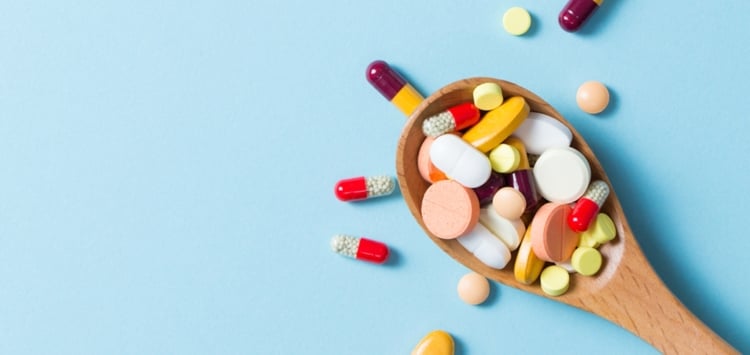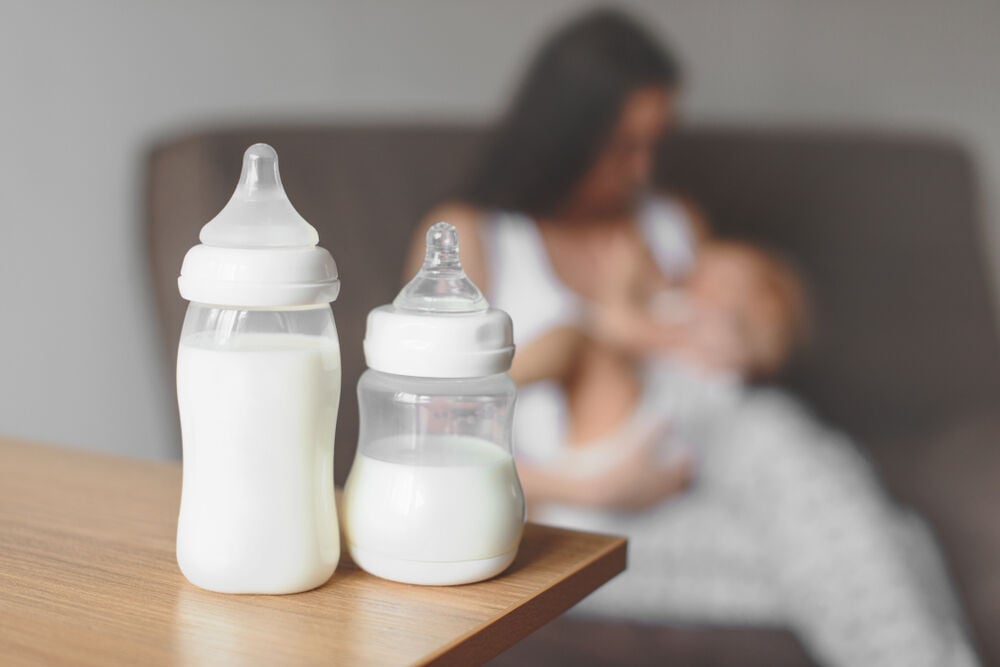-
Tracking cycle
-
Getting pregnant
-
Pregnancy
-
Help Center
-
Flo for Partners
-
Anonymous Mode
-
Flo app reviews
-
Flo Premium New
-
Secret Chats New
-
Symptom Checker New
-
Your cycle
-
Health 360°
-
Getting pregnant
-
Pregnancy
-
Being a mom
-
LGBTQ+
-
Quizzes
-
Ovulation calculator
-
hCG calculator
-
Pregnancy test calculator
-
Menstrual cycle calculator
-
Period calculator
-
Implantation calculator
-
Pregnancy weeks to months calculator
-
Pregnancy due date calculator
-
IVF and FET due date calculator
-
Due date calculator by ultrasound
-
Medical Affairs
-
Science & Research
-
Pass It On Project New
-
Privacy Portal
-
Press Center
-
Flo Accuracy
-
Careers
-
Contact Us
What Medicine Can You Take While Breastfeeding? Drugs and Lactation

Every piece of content at Flo Health adheres to the highest editorial standards for language, style, and medical accuracy. To learn what we do to deliver the best health and lifestyle insights to you, check out our content review principles.
Medications and breastfeeding: what’s the connection?
The quantity of medicine that may transfer into your breast milk and the way it may affect your baby depends on various factors including the age of your baby, the type of medicine you are taking, the dose of the medicine and the way you are taking the medicine. Possible adverse effects your baby may have from medication while breastfeeding includes vomiting, diarrhea, unusual sleeping, and irritability. Furthermore, certain medicines may reduce the production of your breast milk, possibly leading to decreased weight gain in your baby.
Exposure to medications while breastfeeding poses the highest risk to newborns, babies who are unstable medically, premature babies or babies whose kidney function is poor. The risk is lowest in healthy babies, who are six months or older as they may move the medicine through their system efficiently. Women who breastfeed their babies for greater than one-year post delivery often make smaller quantities of breast milk. This decreases the amount of medicine that is passed to their breast milk.

Your physician may advise you to pump your breast milk and dump it while you are taking certain medicines as some harmful drugs may pass to the baby through breast milk. Pumping and dumping your breast milk may help you in keeping up your milk supply so that you have enough milk when you begin nursing your baby again.
In certain cases, it may be possible to take the prescription medicine immediately after breastfeeding your baby. You may then breastfeed your baby again before it’s time for your next dose of medicine. You may ask your doctor whether this approach is safe for your medications while breastfeeding.
Medicine safe to take while breastfeeding
The majority of medicines, including postnatal depression treatment drugs, shouldn’t harm your baby if taken while breastfeeding.
But there’s a risk that small amounts of basically any drug may get to your baby through breast milk. It’s always advisable to ask any of the doctors you deal with about safe medications while breastfeeding if they’re prescribing or giving you medicine.
Other medicines that can be taken while breastfeeding include:
- most antibiotics
- common painkillers, such as paracetamol and ibuprofen — but not aspirin
- some birth control methods
- some types of cold remedies
Always check with your GP, midwife, health visitor, or pharmacist before taking any of them, though.
Unsafe medications while breastfeeding
The most widely spread drugs that aren't recommended when you're breastfeeding include:
- codeine phosphate
- aspirin for pain relief
Talk to you GP or pharmacist before taking antihistamines for allergies or allergy-related conditions, such as hay fever.
Take a quiz
Find out what you can do with our Health Assistant

Drugs and breastfeeding: Does smoking marijuana affect breast Milk?
Yes, smoking marijuana may affect breast milk. Most health experts, including the American Academy of Pediatrics and the American College of Obstetrics and Gynecologists, advise that nursing mothers should abstain from smoking marijuana. It is a fact that babies are more vulnerable than adults to toxins and chemicals. If you smoke marijuana while breastfeeding then your baby may be exposed to the active chemicals present in it, including tetrahydrocannabinol (THC) through your breast milk. Traces of THC are present in the urine of breastfed infants whose mothers use weed or marijuana. According to researchers the side effects of exposure to marijuana in breastfed babies are an inability to suck well and sedation. It may also produce detrimental effects on the development of these children in the long term. Herbicides or other drugs may contaminate weed that may put your infant at even greater risk.
By breastfeeding your baby you have given them a healthy start in life. But when talking about medications and mother’s milk you may have several questions in mind. The list of medicine you can take while breastfeeding safely is quite limited; hence, you should pay close attention when consuming any medications while breastfeeding. The amount of drug that may transfer into the breast milk and the way in which it may affect your baby depends on the age of your baby, the type and dose of medicine you are taking, and the way you are taking it. Exposure to medications while breastfeeding may pose the highest risk to newborns, babies who are medically unstable or premature babies. This risk is lowest in healthy babies who are six months or older. There are some medicines, which may be unsafe to take while breastfeeding. You should discuss with your physician regarding any safer alternative. Smoking marijuana may also affect your breast milk. According to health experts, nursing mothers should abstain from smoking marijuana due to its detrimental effects on the breastfed baby.


Hey, I'm Anique
I started using Flo app to track my period and ovulation because we wanted to have a baby.


The Flo app helped me learn about my body and spot ovulation signs during our conception journey.


I vividly
remember the day
that we switched
Flo into
Pregnancy Mode — it was
such a special
moment.
Real stories, real results
Learn how the Flo app became an amazing cheerleader for us on our conception journey.




